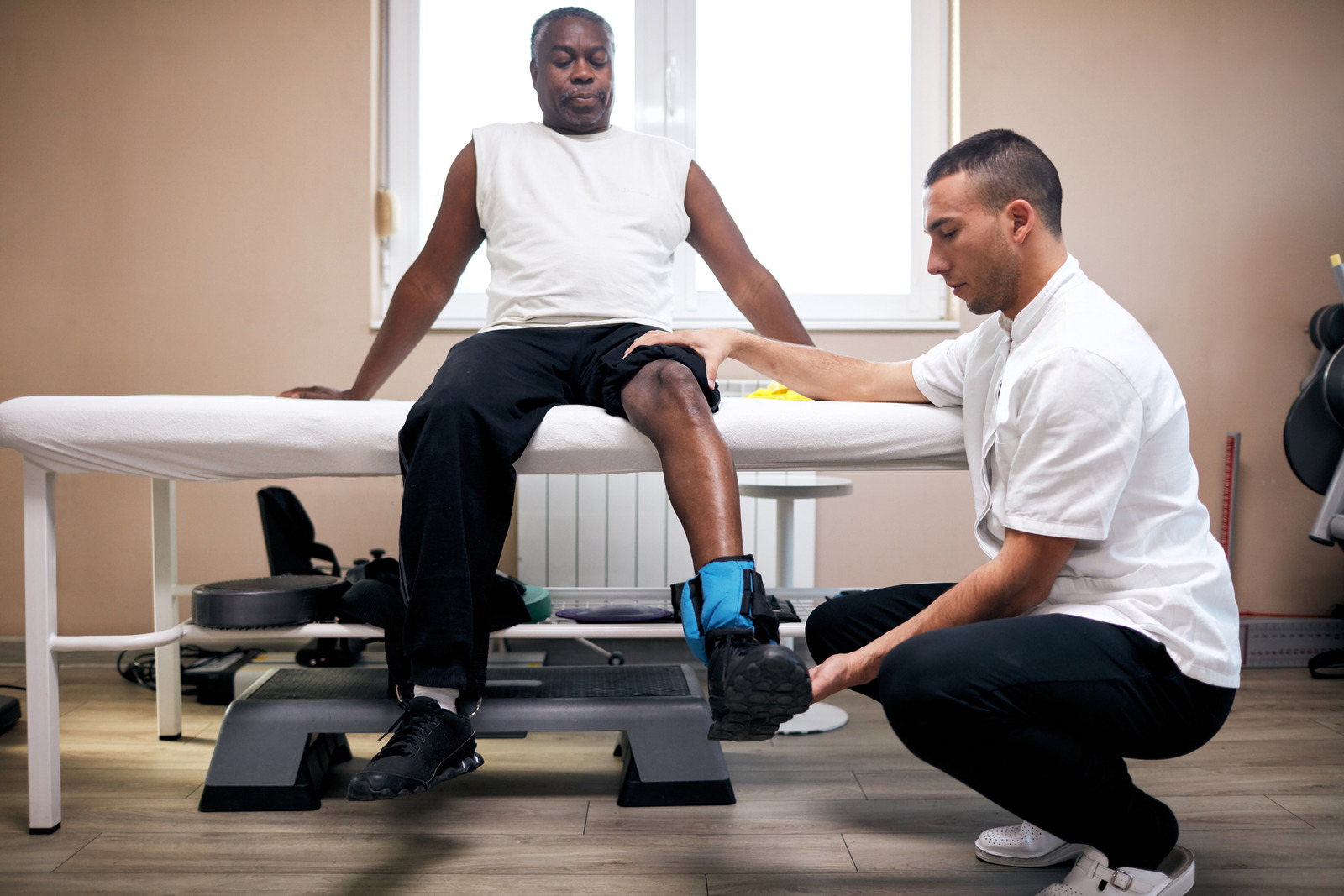
The transportation industry is constantly changing and evolving, so shouldn’t we evolve with it? Driver advocates and innovators, like Dr. Mark Manera, are paving the way for future generations through driver health and fitness awareness, training, education and community outreach.
The commercial transportation industry is a vital component in the supply chain; however, trends demonstrate that driver lifestyle and health have been in the backseat for decades. As Mark explains, “When you look at the statistics, to me, it’s like, how can we ignore it anymore? Seven out of ten drivers are obese and one in every seven have type two diabetes. Not to mention the sedentary lifestyle, diet choices and other challenges that drivers face, I’d make a strong argument that more than one in every three truck drivers are pre-diabetic.”
Quite simply – if drivers aren’t healthy then it creates risk for themselves, fleet owners and insurers, and it deters new potential drivers from entering the supply chain. So why not change the trajectory before it’s too late? That’s exactly what Dr. Mark Manera is doing at Supply Chain Fitness.
Dr. Mark Manera – Fitness Expert, Entrepreneur, Compassionate Human
We sat down (or stood up, in Mark’s case) with Dr. Mark Manera, Founder/CEO of Supply Chain Fitness) to discuss the state of the transportation industry, including:
- Driver health and its impact on drivers, fleet owners and insurers
- The future of the ever-evolving freight industry, and
- How owner-operators and employers in transportation can make a change – right now.
We first talked with Mark about his background, and how he got involved in the delivery industry. Mark’s always been passionate about personal fitness and originally worked as an online personal trainer and coach focused on strength and conditioning, but he soon realized that he wanted more.
After years of training powerlifting athletes, it became clear to Mark that he wanted to do something to make a significant impact on people’s lives. He went on to study Physical Therapy at Maryville University in St. Louis where he received his Doctorate in Physical Therapy. Mark’s new area of expertise led him to an outpatient physical therapy clinic in south St. Louis, where he completed his graduate studies and joined the clinic full-time as a Doctor of Physical Therapy.
“I didn’t realize this when I got started, but a lot of people in the trucking industry have diesel in their blood. They have grandparents, parents who’ve been in trucking, and they just fell into it. I didn’t have that experience.”
At the clinic, Mark had the opportunity to work with many patients who happened to be truck drivers. Mark witnessed first-hand the impact of spending 20 to 30 years behind-the-wheel and the damage the trucker lifestyle can leave on the body – from soft tissue injuries and chronic illnesses to post orthopedic surgeries like hip and knee replacement – usually resulting from diabetes and obesity. Working in the clinic allowed Mark to gain insights about the driver lifestyle which was imperative research for his next endeavor.

There was one driver who had clocked in thirty-seven years as an over-the-road driver who just had a total knee replacement and was diabetic and overweight (obese). Mark’s job was to rehab him to get him back to driving, so he started with his first question: “What do you do for exercise out on the road?
And the driver laughed, replying, ‘I’m a trucker. We don’t do that.
“Now, THAT was interesting to me,” noted Mark. Following his curiosity, Mark talked to countless drivers about the health issues and challenges they were facing, and he began to envision his new mission. He recalls, “There was a huge gap between driver health and fitness resources.” He saw an opportunity to make a difference, and soon The Trucking Fitness Company (now Supply Chain Fitness) was formed with the mission to help drivers start living a sustainable healthier lifestyle.
Investing in his new mission, Mark immersed himself into the world of transportation, trucking, driver lifestyle and health, along the way uncovering shocking statistics that couldn’t be ignored.
The life expectancy of drivers is 16 years less than the average person.
 Obese drivers file two times as many workers’ compensation claims and miss thirteen more days per year due to injury. Obstructive sleep apnea (with obesity being a contributing factor) doubles drivers’ crash risk, and higher BMI (body mass index) increases driver fatigue associated with crashes. These factors affect a driver’s risk score, number of insurance claims, accountability, and retention.
Obese drivers file two times as many workers’ compensation claims and miss thirteen more days per year due to injury. Obstructive sleep apnea (with obesity being a contributing factor) doubles drivers’ crash risk, and higher BMI (body mass index) increases driver fatigue associated with crashes. These factors affect a driver’s risk score, number of insurance claims, accountability, and retention.
Inspiration from Transportation Industry Experts
In addition to Mark’s days as a physical therapist at the clinic, he also attributes inspiration from his friend, colleague and mentor, Billy Canary, former president of American Trucking Association who currently resides as senior advisor to Supply Chain Fitness. Billy’s keen insight on the state of driver health was direct and to the point: “It’s a problem, and we need a solution. The only thing that’s changed in the last twenty years is that it’s gotten worse.”
Mark adds, “I think everyone understands it’s a problem. But I just don’t think anyone has really implemented a solution that’s scalable to the whole supply chain. That’s what we’re trying to do with Supply Chain Fitness.”
Together as an industry, we have the ability to innovate solutions that will support driver health and safety. Dr. Manera believes in standing up and really fighting for the health of drivers, and we couldn’t agree more.
“There’s some really hard-hitting truths that a lot of people like to sweep under the rug, and I kind of like to throw it right in their face.”
After immersing himself in medical records, articles, statistics, reports and driver stories, Mark was ready to finally start his new company, now Supply Chain Fitness.
The Supply Chain Fitness Program – Why It Works
Mark walked us through a typical company onboarding process: “We partner with trucking companies and take the day-to-day stress and responsibility of the health and wellness program – the coaching, the accountability for their HR or safety team – and really handle all the day-to-day logistics, marketing, employee onboarding and management. We first establish health and fitness company goals, for example, like driver retention. Let’s say they’ve had one too many soft tissue injuries with drivers having to miss work and they just want to do everything they can to decrease the likelihood of that happening more.” After establishing goals, Mark’s team develops a customized health and fitness program. It’s offered to company employees and drivers as part of their benefits package, and they have the option to join the program or opt out.
The Supply Chain Fitness program can be used as part of a company’s safety initiatives and as a recruiting tool to retain and attract more drivers. By implementing small changes to a driver’s diet, fitness and overall improvements in health habits, his clients can lose weight, better control blood pressure and blood sugar, and improve energy levels which helps companies reduce costs and mitigate risks related to driver injury and health.
Driver Stories with a BIG Impact
Two compelling driver stories with one thing in common: set a goal and make a change.
Driver #1 – Soda Lover
“There was a guy who was overweight and diabetic. During the onboarding call, I always ask, ‘What do you feel is the biggest thing holding you back right now?’ He said, ‘Every single day when driving down the road, he drinks a twelve pack of Pepsi. I didn’t even know it was possible to drink that much! It didn’t surprise me that he was diabetic. So, we started with one small change: reducing the amount of soda he was drinking by switching to zero-calorie beverages – first diet soda options, then other calorie free drink options, and even water. In the first couple of weeks, he lost twelve pounds. From that one change, and in just a couple of months, he doesn’t drink soda anymore.”
Driver #2 – Junk Food Enthusiast
He wanted to lose 100 pounds. They started with changing habits in his diet by first switching up unsatisfying, high calorie snacks for healthier options. For this driver, modifying his truck environment was integral to reaching his goal, so they removed all the junk food snacks in the truck and replaced them with healthier choices because as Mark explains: “When you’re bored and you’ve got a bunch of junk food in your truck, regardless of your willpower, you’re going to eventually eat it.”

The driver also wanted to incorporate more exercise into his over-the-road lifestyle. The solution? Daily walks and accountability with coaches at SCF. So far, he’s lost thirty-three pounds in just three to four months with the program. “It’s just slow and steady,” praises Mark.
Mark’s health and fitness philosophy is that with small changes to habits and lifestyle, drivers can meet health goals and feel more energized to do the job they love, on the road or at home.
Community Outreach and Technology Unite
When Mark’s not coaching on driver health and fitness or speaking at the latest transportation or trucking conference, you may find him serving up entertaining and relatable content on TikTok and LinkedIn, or discussing health trends and tips on his podcast, Trucking Fitness Radio.
Like many companies, Supply Chain Fitness has not only embraced technology (like with their SCF driver app and remote professional fitness coaching), but also believes in connecting with its audience in an authentic and relatable way via social media.
In the last decade, technology has transformed the way the transportation industry works. Today, we have the ability to coach drivers in real-time via in-truck AI software, like TruckSpy, provide real-time monitoring and risk-scoring through software like ClearTrac, and now, Supply Chain Fitness’ program can transform drivers and fleets through its app,“regardless if they’re in New York or Texas.”
The SCF app allows Mark’s coaches to connect with drivers when they’re on the road, providing personalized coaching any time, anywhere. Not to mention, drivers can tune into his numerous social media platforms like TikTok.

Community is something Mark speaks about passionately and feels his program, paired with the app, has created a supportive community for drivers to connect with one another while away from home – to share similar stories and to get personalized workouts and meal plans right to their truck. The open road can be a lonely place but with new technologies and innovators like Dr. Mark Manera, we can foster a positive, engaged and healthy environment for drivers.
“I care what drivers are doing in four WEEKS, after starting our program, but I care a lot more about what they’re doing in four YEARS.”
The Future of Driver Health and Fitness
Attracting and retaining drivers comes with its own challenges. The next generation of drivers, GenX, is different. They are already prioritizing health, fitness, health care benefits, quality of life, and overall, a sustainable driver lifestyle they can grow with for years to come and hopefully pass on to future generations.
Offering innovative solutions in health and fitness is just one way companies like Supply Chain Fitness and ClearConnect Solutions are paving the way for future generations of drivers that may just last a lifetime.
“I think with any company, there are some things we’re still working on, like helping more with retention and creating better content and workouts. But, I think we’re on the right path, and it’s been really exciting.”
You can follow Mark’s latest content on LinkedIn, TikTok, Twitter, Instagram, Facebook, and Trucking Fitness Radio.